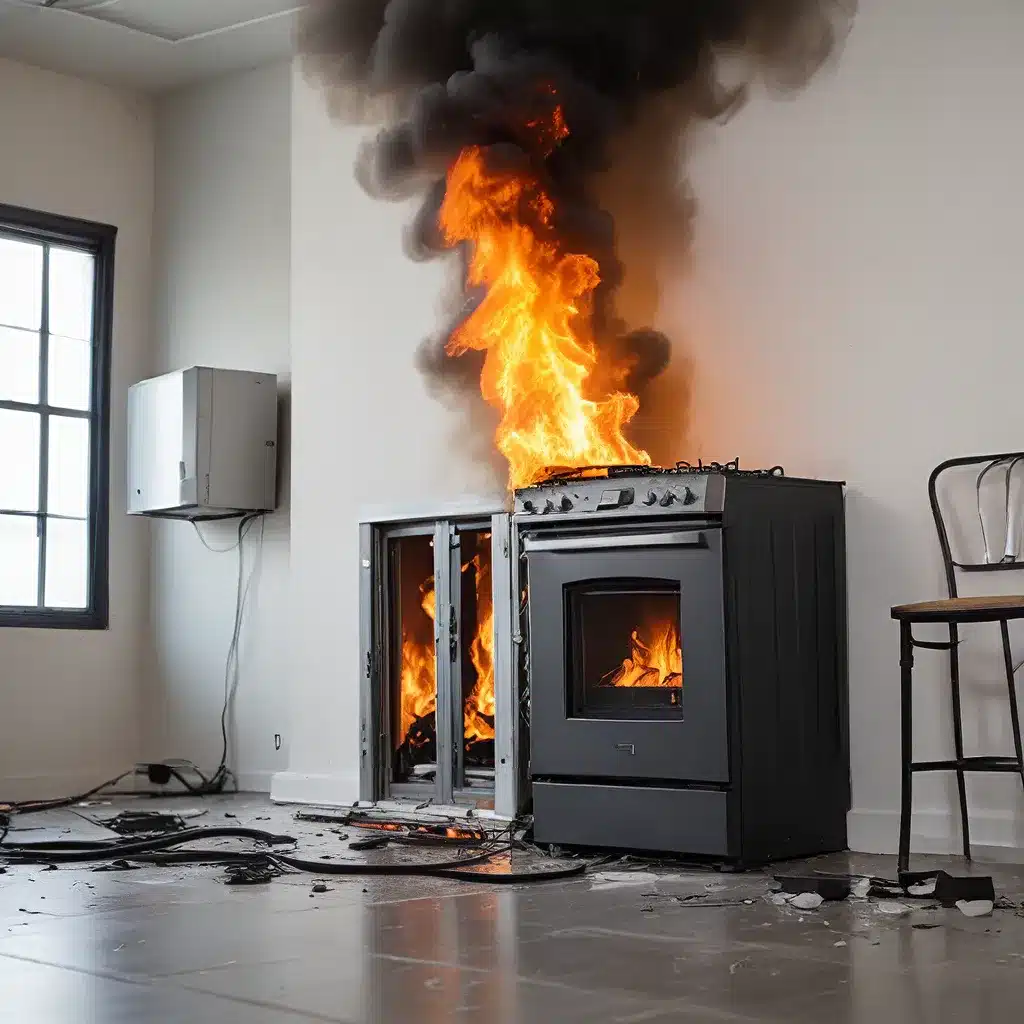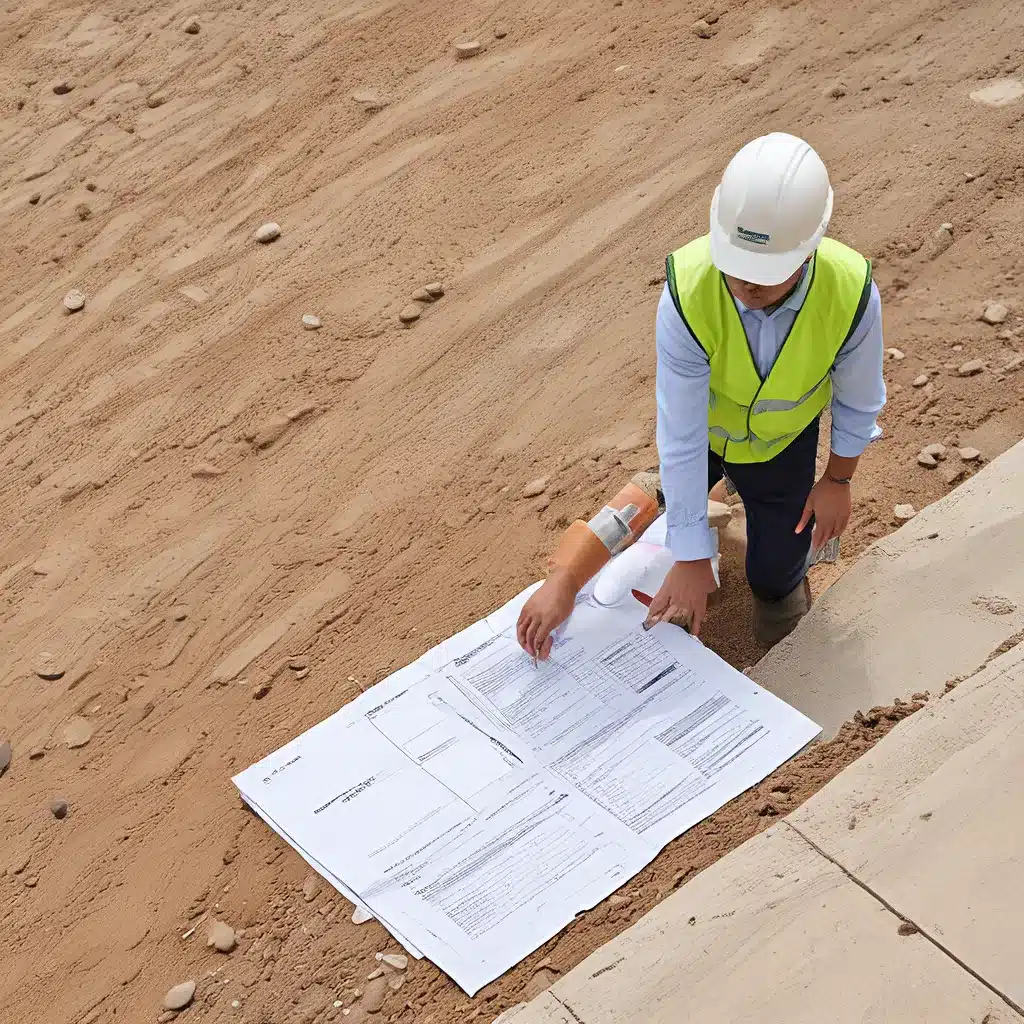
Have you ever had one of those heart-stopping moments where you walk into the kitchen, see smoke billowing from the oven, and immediately panic? Yeah, me too. It’s a sinking feeling that no one wants to experience, especially in their own home. But the reality is, electrical fires and appliance-related accidents are more common than you might think.
According to the United States Consumer Product Safety Commission, a staggering 31,000 home electrical fires occur every year in the US. And with over 180 cases involving electrocution or electricity-related incidents that could have been avoided, home electrical safety is clearly a matter that deserves our utmost attention.
As a general contractor and home improvement enthusiast, I’ve seen my fair share of electrical mishaps and appliance-related disasters. But I’m here to tell you that with the right knowledge and a few simple precautions, you can optimize the safety of your home appliances and significantly reduce the risk of accidents and fires.
Understanding the Risks: Electrical Fires and Appliance Hazards
Let’s start by taking a closer look at the leading causes of electrical fires and appliance-related incidents. According to the National Fire Protection Association, faulty or damaged wiring and related electrical equipment are responsible for a whopping 69% of electrical fires. This is followed by issues with lamps, light fixtures, cords, plugs, transformers, and other power supplies.
But the dangers don’t stop there. The Gulf Coast Appliances team also highlights the risks of water exposure, lack of air circulation, and clogged exhaust fans as potential hazards that can lead to appliance malfunctions and even fires.
Imagine your coffee maker spontaneously catching fire because the power cord was frayed and pressing against the wall. Or your dryer bursting into flames due to a blocked exhaust vent. These scenarios may sound like something out of a Hollywood horror movie, but they’re all too real, and the consequences can be devastating.
Preventing Electrical Fires and Appliance-Related Accidents
Now that we’ve got a better understanding of the risks, let’s dive into some practical tips and strategies for optimizing home appliance safety and preventing accidents.
Inspect and Maintain Your Electrical System
One of the most crucial steps in maintaining home appliance safety is to regularly inspect your electrical system. Start by checking all outlets to ensure they are cool to the touch, have proper protective faceplates, and are in good working order. If you notice any signs of wear, damage, or overloading, it’s time to call in a qualified electrician.
Next, take a close look at your power cords and extension cords. Damaged or frayed cords can be a serious fire hazard, so make sure to repair or replace them as needed. And remember, never staple cords into place or run them under rugs or furniture, as this can lead to overheating and potentially catastrophic consequences.
Unplug Unused Appliances
One of the simplest yet most effective electrical safety tips is to unplug your appliances when they’re not in use. Not only does this help reduce your energy consumption and save you money on your utility bills, but it also protects your appliances from potential power surges or overheating that could trigger a fire.
The team at Gulf Coast Appliances suggests that the new generation of smart plugs can make this task even easier, allowing you to set power schedules for each outlet in your home.
Maintain Proper Air Circulation
Proper air circulation is crucial for the safe operation of your home appliances. Electrical equipment that is run in enclosed spaces or lacks adequate ventilation can easily overheat and become a fire hazard.
Make sure to keep your appliances out of enclosed cabinets and provide at least a foot of clearance between the back of the appliance and the wall. And don’t forget to regularly clean any exhaust fans or vents to ensure they’re working efficiently and not posing a risk.
Choose the Right Bulbs and Wattages
When it comes to home appliance safety, the type of light bulb you use can make a big difference. Always check the wattage recommendations for each lamp, fixture, and appliance, and opt for LED bulbs whenever possible. These energy-efficient alternatives not only consume less power but also reduce the risk of your fixtures overheating.
Protect Your Appliances from Water Exposure
Water and electricity are a dangerous combination, and it’s crucial to keep your home appliances dry and away from any potential water sources. Avoid running electrical equipment near sinks, tubs, aquariums, or other areas where water may be present, and make sure to have dry hands when handling any appliances.
Childproof Your Home
Young children are naturally curious and can pose a significant risk when it comes to home appliance safety. To protect your little ones, be sure to install safety caps and covers on all electrical outlets, and keep dangerous appliances like toasters, blenders, and kettles out of reach on high shelves or in locked cabinets.
Educate your kids about the importance of electrical safety, and teach them not to pull on or tamper with cords and plugs. Empowering them with knowledge can go a long way in preventing accidents and keeping your home safe.
Preparing for the Unexpected: Severe Weather and Power Surges
Even with all the precautions in the world, there are some factors beyond our control that can still threaten the safety of our home appliances. Severe weather, power surges, and other unexpected events can wreak havoc on your electrical system and potentially trigger fires or appliance malfunctions.
That’s why it’s so important to be prepared. Keep a close eye on weather forecasts and be ready to unplug your appliances in the event of a storm. And consider investing in surge protectors or a whole-house surge protection system to safeguard your electronics and appliances against sudden power spikes.
The Importance of Appliance Maintenance and Professional Inspections
At the end of the day, the best way to ensure the safety of your home appliances is to stay on top of regular maintenance and periodic professional inspections. This might mean scheduling annual tune-ups for your HVAC system, cleaning the lint traps in your dryer, or having a licensed electrician evaluate the condition of your home’s wiring and outlets.
It’s also a good idea to research the safety ratings and certifications of any new appliances you purchase. Look for the Nationally Recognized Testing Laboratories (NRTL) listing to ensure your appliances meet the highest safety standards.
Remember, your safety and the safety of your family should always be the top priority. By following these best practices and staying vigilant, you can help prevent electrical fires, appliance-related accidents, and other potentially devastating incidents in your home.
And if you ever have any doubts or concerns about the electrical or appliance safety in your home, don’t hesitate to reach out to a trusted professional, like the team at Reading General Contractor. We’re here to help you create a safer, more secure living environment for you and your loved ones.
Related posts:
No related posts.




